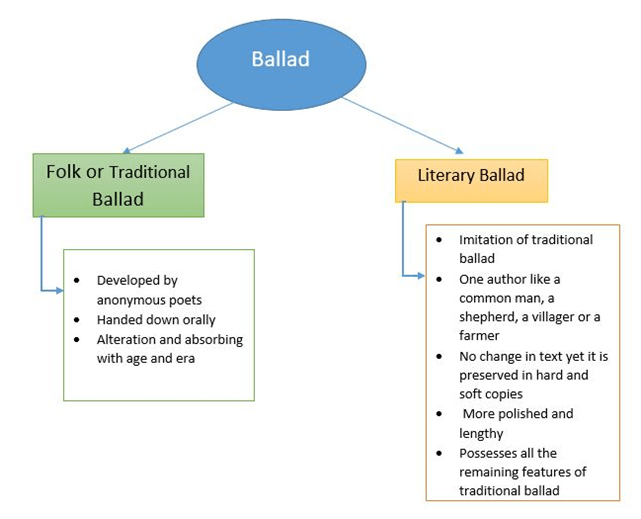Key Difference – Ballad vs Epic
Poetry is typically divided into three basic types: lyric poetry, descriptive or didactic poetry, and narrative poetry. Ballads and Epics are two primary literary forms that belong to narrative poetry, which focuses on verbal representation in verse and features a sequence of connected events driving characters through a plot. The main difference between ballads and epics is their length; ballads usually focus on a single story episode and are shorter in length.
Key Takeaways
- Ballads and epics are both types of narrative poetry, but ballads tend to be shorter and focus on a single story episode while epics are longer and cover a broader range of events.
- Both ballads and epics were traditionally performed for audiences, often with the use of music, and revolved around themes of adventure and romance featuring heroic characters.
- Ballads can be divided into folk or traditional ballads and literary ballads, while epics can be divided into folk or traditional epics and literary or art epics.
Ballad – Definition, Origin, Forms
The word “ballad” comes from the Latin word “Ballare,” meaning “dancing song.” It is believed to have originated from France, with the oldest surviving ballads dating back to the 14th century. By the 17th and 18th centuries, English writers popularized ballads through the use of the printing press. During this time, single ballads were published as broadsides, which were large sheets of paper featuring a single poem.
Epic – Definition, Origin, Forms
The word “epic” is derived from the ancient Greek adjective “epikos,” which means “poetic story.” The earliest complete surviving epic is the Epic of Gilgamesh, composed between the 13th and 10th centuries B.C. Epics are narrative poems that deal with the heroic deeds of a person with unusual courage and bravery, often using a grandiose style.
What is the difference between Ballad and Epic?
Ballads typically use simple colloquial language and have a universal appeal, touching upon subjects that are not personal or specific to a country but rather dealing with all of humanity. They are usually written in quatrains with a repetitive rhythmic scheme and often dwell on tragic scenes, although there are some humorous ballads as well. In contrast, epics use an elevated style of language and focus on a specific culture, race, nation, or religious group. They often employ exaggeration, epic similes, and recurrent syllables and structures to make an impression on the audience.
While ballads tend to narrate a story that is often dramatic or emotional, epics usually start with an invocation to the muse and then pick up the story’s threads from the middle, moving on to the end. Ballads dwell upon only one particular episode of the story, while epics use vast settings and lengthy time spans.
